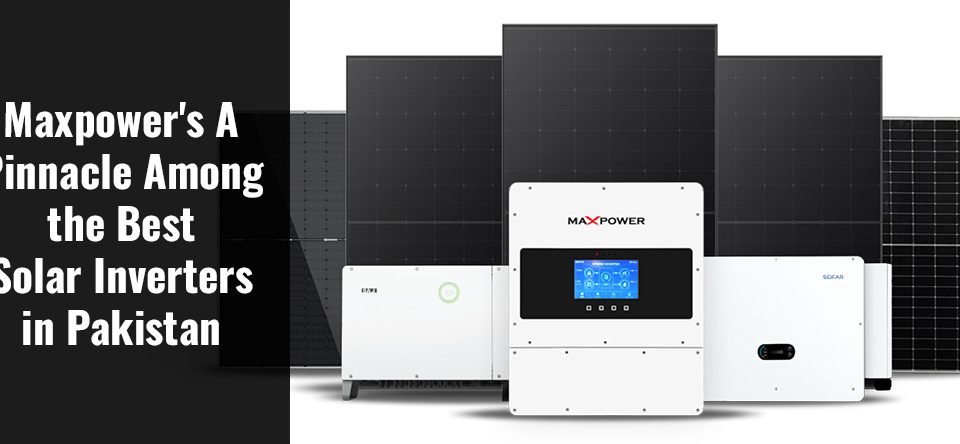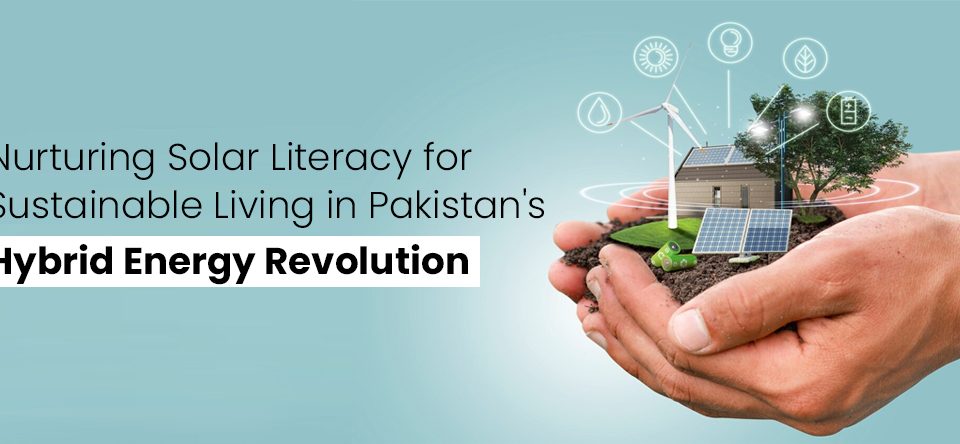
Embrace the Future of Energy: Explore the Exciting Advancements and Innovations in Solar Energy
March 29, 2023
Solar Inverters: Tackling Pakistan’s Energy Crisis
April 11, 2023As the world faces increasing energy crises, many homeowners turn to solar energy as a sustainable and cost-effective alternative. With solar panels and solar inverters from Maxpower, a leading solar solutions company in Pakistan, it’s always been challenging to build a self-sufficient, off-grid home.
This article will explore tips and tricks for choosing the right solar panels, solar inverters, and other essential components to create a solar-powered haven.
Why Choose Solar Energy?
Solar energy is a renewable and clean energy source, offering a range of benefits for homeowners looking to become self-sufficient. By harnessing the sun’s power, you can reduce your carbon footprint, lower your energy bills, and even increase your property’s value. Furthermore, solar panels require minimal maintenance, making them an ideal investment for a low-stress, eco-friendly lifestyle.
Advantages of Maxpower Solar Panels and Solar Inverters
Maxpower offers high-quality solar panels and solar inverters designed to withstand Pakistan’s climate while providing reliable energy production. Some of the key advantages of choosing Maxpower products include the following:
Efficiency: Maxpower solar panels boast a high-efficiency rate, ensuring that you get the most energy from the sunlight that hits your panels. This makes them an excellent choice for homeowners who want to maximize their solar energy production.
Durability: Designed to withstand harsh weather conditions, Maxpower solar panels are built to last, giving you peace of mind and long-lasting investment.
Versatility: Maxpower offers a range of solar inverters to suit different needs, whether you’re looking to power a small home or a large commercial property.
Tips for Choosing Solar Panels
Selecting the right solar panels is crucial to building a self-sufficient solar-powered home. Here are a few tips to help you make the right choice:
Calculate Your Energy Needs
Before choosing solar panels, determine how much energy your home requires. Start by calculating your average monthly electricity usage, then factor in any additional energy needs, such as heating and cooling. This will help you determine the number of solar panels you need for your solar-powered home.
Choose the Right Type of Solar Panels
Solar panels come in various types, each with its own set of advantages and disadvantages. Some standard options include monocrystalline, polycrystalline, and thin-film solar panels. Monocrystalline panels, for example, offer higher efficiency rates but may be more expensive. Research each type and consult a Maxpower expert to select the best option.
Consider Panel Size and Installation Location
Solar panels come in different sizes, so it’s essential to consider the available space on your property for installation. Furthermore, think about the direction and angle of your panels to maximize sunlight exposure. A professional from Maxpower can help you determine the optimal placement for your solar panels.
Tips for Choosing Solar Inverters
Solar inverters play a crucial role in converting the solar energy your panels generate into usable electricity for your home. Here are some tips for selecting a suitable solar inverter:
Determine Inverter Capacity
Your solar inverter should be capable of handling the energy output of your solar panels. To determine the right inverter capacity, consider the total wattage of your solar panel system and choose an inverter with a power that matches or slightly exceeds this figure. Maxpower offers a range of solar inverters for different system sizes, ensuring you find the perfect match for your solar-powered home.
Choose Between Central and Microinverters
There are two main types of solar inverters: central inverters and microinverters. Central inverters handle the power conversion for your entire solar panel system, while microinverters are attached to each solar panel for individual power conversion. Microinverters can offer better efficiency and performance in shaded areas, but they tend to be more expensive. Consult with a Maxpower expert to determine which option best suits your needs.
Look for Quality and Reliability
Investing in a high-quality, reliable solar inverter is essential for a self-sufficient solar-powered home. Maxpower solar inverters are known for their durability, efficiency, and reliability, making them an excellent choice for homeowners looking to build a solar-powered home.
Other Components for a Self-Sufficient Solar-Powered Home
In addition to solar panels and solar inverters, you’ll need a few other components to complete your off-grid solar-powered home:
Battery Storage
Battery storage allows you to store excess solar energy during cloudy days or at night. Select a battery with enough capacity to meet your home’s energy needs during low solar energy production periods.
Charge Controller
A charge controller regulates the flow of electricity between your solar panels, battery storage, and solar inverter, protecting your system from overcharging or discharging. Choosing a high-quality charge controller is essential for the longevity and efficiency of your solar power system.
Monitoring System
A solar monitoring system lets you track your solar panel system’s performance, providing valuable insights into energy production and consumption. This information can help you adjust to optimize your system’s performance and maximize your energy savings.
Wrapping it up
Building a self-sufficient solar-powered home is attainable with the right components and guidance. By selecting high-quality solar panels and solar inverters from Maxpower, you can create a sustainable, off-grid living experience that benefits your wallet and the environment. Consult a Maxpower expert to help you choose the best products and system design for your specific needs. Together, we can build a cleaner, greener future.




